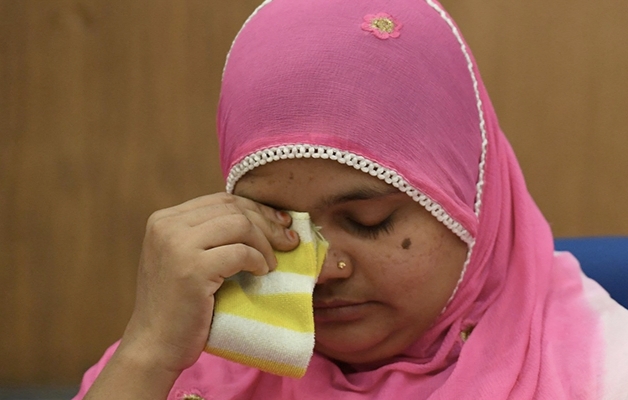New Delhi: The Gujarat government on Monday told the Supreme Court that 11 convicts in Bilkis Bano gangrape case were released form the jail as their “behaviour was found to be good”.
The Gujarat government today filed an affidavit in the Supreme Court in the case of remission to Bilkis Bano’s convicts and said that all convicted to life imprisonment in the 2002 Post-Godhra Bilkis Bano gangrape case were released from Godhra sub-jail as part of its amnesty policy.
Seeking dismissal of the plea, the government pleaded that the third party has nothing to do with this case and PIL filed by CPI(M) leader Subhashini Ali is politically motivated. However, the matter will be heard again on Tuesday.
The Gujarat government has questioned the filing of the petition by the petitioner (Subhashini Ali, Mahua Moitra, an independent journalist). The Gujarat government has said that the decision to release all the convicts was taken on the basis of the opinion of all the persons on the board.
” The CJI has listed our petition re the decision of Gujarat Govt in releasing those convicted of gangrape and murder in the BilkisBano case for hearing tomorrow. Million like us hope that injustice will be undone and that these criminals will be sent back to jail where they belong,” Subhashini Ali wrote in a tweet.
Earlier, the state government had decided to release 11 prisoners as the convicts had completed 14 years and above in jail and were found to be in good behaviour. After the approval of the state government, orders to release the convicts were issued on August 10, 2022. In this case, the state government has also considered proposals under the 1992 policy directed by this court.
This release took place according to the rules. It is wrong for the petitioners to say that these people were given remission on the occasion of Azadi Ka Amrit Mahotsav, the government said in its affidavit.
A special CBI court had sentenced the 11 convicts to life imprisonment for gang-raping and killing seven family members of Bilkis Bano on January 21, 2008. The conviction was later upheld by the Bombay High Court.


